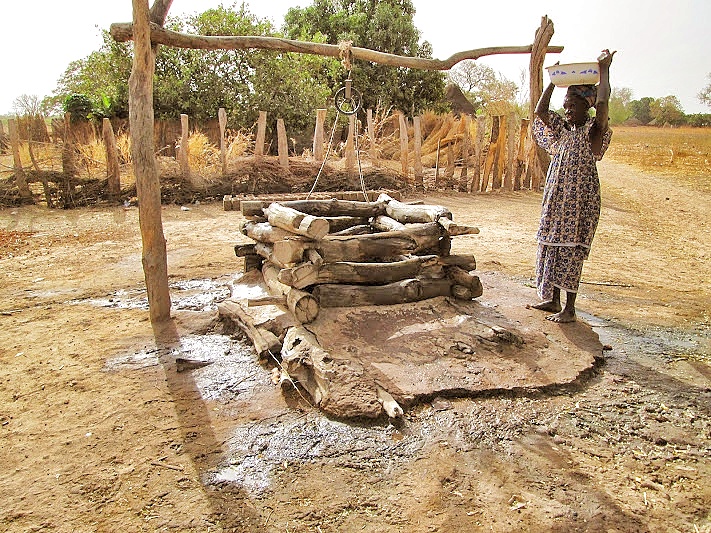Groundwater - the saviour?
Over the last few weeks I have explored climate change and its potential implications for food and water across Africa. I have demonstrated some of the potential effects of increased water variability and in some places scarcity as a result of global warming and what this means for agricultural food production. However, in this post, I am going to ask myself, is it really as bad as we think?
Recent estimates suggest that water storage in Africa’s groundwater reserves are 20 times larger than that of water stored in reservoirs and lakes above ground. In fact, over 80% of domestic rural water supplies in Sub-Saharan Africa are derived from groundwater sources. Groundwater can be extracted using boreholes, springs and wells (Figures 9 to 11 respectively) and is often of an incredibly high quality and superior to that of surface waters. This is because surface water in Africa is vulnerable to direct contamination whereas rain water that passes through geology to reach the surface is often disinfected as pollutants are degraded along the way.
As rates of potential evapotranspiration increase due to rising temperatures associated with global warming, it is likely that groundwater will become increasingly heavily relied on for agricultural irrigation. The analysis of extensive groundwater level and rainfall have demonstrated that there is a difference in how groundwater is recharged in the wetter regions of Africa compared to the drier regions (Cuthbert et al, 2019). In wetter regions, groundwater is often recharged by rain water which infiltrates down to the water table (Cuthbert et al, 2019). Contrastingly, in drier regions groundwater recharge predominantly occurs via water leakage from temporary streams and ponds which form as a result of intense rainfall events. This is of incredible importance as the studies previously used in my blog to explore the implications of climate change on food and water in Africa have neglected this method of groundwater recharge and as a result are likely to have over-estimated the negative impacts of climate change on water supply and food production.
As aforementioned, global warming is set to intensify rainfall events in Africa and resultantly lead to a higher proportion of “extreme precipitation events” relative to low to medium events (Allan and Oden, 2008:1484). This is incredibly important for Sub-Saharan Africa. I have used the region Sub-Saharan Africa throughout this blog as it is naturally the most water scarce region in Africa. Nevertheless, conventional models such as those in blog posts 4 and 5 demonstrate an increasing scarcity of freshwater as global warming reduces rainfall. However, in this post I demonstrate that this might not be the case. As discussed, global warming will lead to “fewer but heavier bursts” of rainfall which as explained could have positive impacts for groundwater recharge overall and most notably in the drier regions of Africa in particular.
Such intense rainfall events in Africa can be used as an advantage as they often coincide with El Niño and La Niña weather patterns which can be predicted up to 9 months in advance. Once successfully anticipated, the resultant effectiveness of groundwater recharge could be maximised by collecting portions of the flood water from intense events and pumping it into groundwater storage where it is safer from evapotranspiration and can therefore provide a long-term store of water during the dry season. This water can be used to irrigate crops and ensure adequate food security throughout the year.
So now I ask myself, is climate change really as bad as we think for water and food in Africa? In my opinion, it has the potential to not be as bad as anticipated if the methods mentioned above are utilised. The points I cover in previous posts about how low bulk transmissivity and other individual characteristics will play a key role in certain regions must also be taken into consideration here. Nevertheless, I believe the way that Africa chooses to adapt towards these changing rainwater events will play a fundamental role in the success of the continents battle against climate change. I also hope to have demonstrated that the way in which they utilise, understand and research groundwater will also be a significant determining factor in my opinion.




Comments
Post a Comment